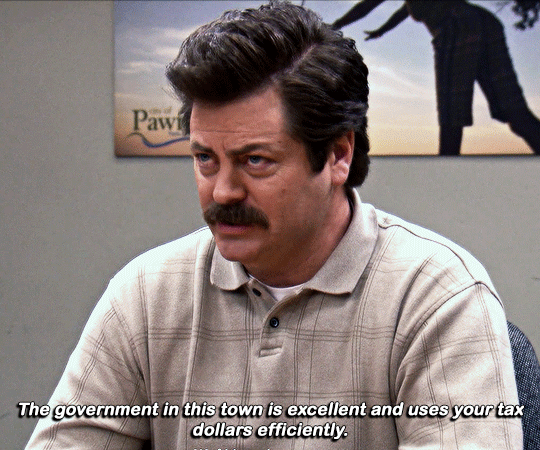Property Taxes and Your Mortgage: What They Are and How to Calculate Them
13 Min Read | May 9, 2024

I love taxes! Said no one . . . ever. Paying taxes is like taking a trip to the dentist—it’s part of life, but not a fun part. Property taxes are no exception.
If you’ve owned a house for a few years, you know property taxes are part of the deal. But it’s easy for new home buyers to ignore how property taxes can affect their budget during all the excitement of buying a house. (Garden or pool? Country or city? Shutters or blinds? Quarterly or annual tax installments? One of these things is not like the other.)
Even if you remember to factor in these pesky little payments, you’ve probably got some questions about them: How are property taxes paid? How often do you pay property taxes? When do you pay them? And are property taxes included in your mortgage payment?
Let’s cut through the confusion about property taxes so you don’t make a mistake that could cost you hundreds—or even thousands—of dollars.
Key Takeaways
- Property taxes are the annual fees local governments collect from property owners to pay for public services.
- The amount you pay in property tax is based on your local government’s tax rate and your property’s assessed value.
- Tax rates depend on where you live—some locations are more expensive than others.
- When you’re looking for a house, don’t forget to factor in property taxes when calculating a potential mortgage payment.
What Are Property Taxes?
Property taxes are a yearly fee that local governments collect for public services in the community. A good chunk of the money collected from property taxes goes to your local police and fire departments, schools and road maintenance. So when your local government (finally) sends someone to fix that pothole in your neighborhood, it could be your property tax dollars at work!

Okay, okay . . . I know. All you Ron Swansons out there are probably scoffing at that last part, but that doesn’t make it any less true. They may not always spend tax dollars efficiently, but regardless, they need your money.
Property Taxes vs. Real Estate Taxes
Lots of people use “property tax” and “real estate tax” to mean the same thing . . . like how drinking fountains are called bubblers in Wisconsin and Massachusetts (which, admittedly, is a lot more fun to say).
But are they the same? Well, yes and no. Real estate taxes are a specific type of property tax. Believe it or not, some states and counties do charge taxes for tangible personal property (TPP) like vehicles and furniture. Now don’t go thinking that your local government is going to start looking in your house to see how many couches you own. This kind of tax is usually just for businesses and business property.
So when I say “property taxes” in this article, know that I’m talking about real estate taxes.
Do I Really Need to Pay Property Taxes?
Is the sky blue? Yes, everyone who owns property has to pay property taxes. That includes homeowners. And if you own other types of property (like farmland you inherited from your parents or an investment property), you’ll pay property taxes on those too.
But if you’re renting someplace, like an apartment or an office space, you don’t have to worry about property taxes. That’s on your landlord.
How Are Property Taxes Paid?
Property tax is included in most mortgage payments (along with the principal, interest and homeowners insurance). So if you make your monthly mortgage payments on time, then you’re probably already paying your property taxes. Isn’t that convenient?
Dave Ramsey recommends one mortgage company. This one!
Here’s how you pay property taxes as part of your mortgage payment:
Let’s say Jim and Pam decide to buy a home, and their mortgage lender estimates they’ll owe $1,600 in property taxes each year.
Instead of letting Jim and Pam get smacked with a huge tax bill at the end of the year (because no one wants to get blindsided like that), their lender will divide their total property tax amount by 12 months. Then they’ll charge Jim and Pam that amount of their property taxes as part of their mortgage payment each month. Let’s look at the math:
$1,600 / 12 months = $133 per month
The lender sets that $133 a month aside in a separate account (usually called an escrow account) and uses it to pay property taxes to the local government when they’re due.
Here’s an important callout: The mortgage lender gives you estimates of what you owe in property tax. If that estimate is off, you might get a refund, or you might have to pay a little extra. Be prepared for either scenario!
Don’t have a mortgage? How you pay property taxes will be a little different.
How Are Property Taxes Paid After I Pay Off My House?
There’s nothing more freeing than making your final mortgage payment, walking out to the backyard of your completely paid-off home, and feeling the grass beneath your feet. It just feels different.
No more monthly house payments for you! But does that mean you’re also finished with property taxes?
I hate to be the bearer of bad news, but you have to pay property taxes forever. (Okay, not forever. But for as long as you own the property. Even after it’s paid for.) Benjamin Franklin was spot on when he said that nothing is certain except death and taxes. Amen, Ben.
The difference is how and when you pay your property taxes.
Once you pay off your house, your property taxes aren’t included in your mortgage anymore, because, voila! You don’t have one. Now it’s on you to pay property taxes directly to your local government. No more middleman between you and the tax collector.
How often you pay property taxes depends on where you live. Your local government may want your property taxes paid in one lump sum a year or broken into smaller payments that are spaced a few months apart.
The exact day your property taxes are due also depends on where you live, so pay attention to the due date on your property tax bill when it arrives in the mail. This means you have to check your mail (or email if you’re extra nerdy and signed up for tax notifications like me). Since my wife and I paid off our house, we’re in this boat. (And you bet your bottom tax dollar that I’ve marked my calendar for February 29, when our property taxes are due!)
And don’t think you can just skip a payment here and there, either. If you get behind on your property taxes or you don’t pay them at all, the local government can put a lien on your house to make you pay your taxes when you sell it, or they can even take your house and sell it to recoup the tax debt you owe them . . . even though your house is completely paid for. Yikes. Don’t ever let it come to that.
The best way to handle property taxes on your own is to plan ahead.
First, calculate what you’ll owe for each property tax bill and divide it by the number of months between bills. So, if you owe property taxes once a year, divide the amount you owe by 12 months. If you pay twice a year, you’ll divide the amount you owe by six months. And so on.
Then set that money aside in a sinking fund each month. That way, you won’t have to dig under the sofa, or worse, sell your sofa on Facebook Marketplace to scrape up the money to pay those taxes when they’re due.
Get the right mortgage from a trusted lender.
Whether you’re buying or refinancing, you can trust Churchill Mortgage to help you choose the best mortgage with a locked-in rate.
How Do I Calculate What I Owe in Property Tax?
The amount you pay in property tax is based on two things: your local government’s tax rate and your property’s assessed value. Just take your home’s assessed value and multiply it by the tax rate.
Assessed Value x Property Tax Rate = Property Tax
Say your home has an assessed value of $300,000. If your county tax rate is 1%, your property tax bill will come out to $3,000 per year. That’s $250 per month, if your property taxes are included in your mortgage or if you’re saving up the money in a sinking fund.
Here’s how to do that math, by the way:
$300,000 x 1% tax rate = $3,000 taxes owed
$3,000 / 12 months = $250 per month
Assessed Value
Here’s a common mistake a lot of folks make: The assessed value isn’t the same as the price you paid for the house. It isn’t how much you can sell the house for, either—that’s called the appraised or market value.
Your local government’s tax or property assessor sets the assessed value for your house, and it’s usually lower than the market value. That’s a good thing because the amount you pay in property tax is based on that lower value. Thanks, local government!
No idea what the assessed value of your home is? Dig up your most recent tax bill or do a quick search of properties on your city or county tax assessor’s website.
Property Tax Rate
Since local governments set property tax rates, the amount you pay depends on the city and county you live in. So, the property tax rate for a condo in the middle of New York City won’t be the same as a house a few hours away in the suburbs of Syracuse.
To give you a general idea, homeowners in 2023 (the latest data available) paid an average of $4,062 in property taxes at an average tax rate of 0.87%.1
Let’s look at the top five highest and lowest average property tax rates around the nation:
|
Highest Property Taxes2 |
|
|
State |
Average Rate |
|
Illinois |
1.88% |
|
New Jersey |
1.64% |
|
Connecticut |
1.54% |
|
New York |
1.46% |
|
Nebraska |
1.46% |
|
Lowest Property Taxes3 |
|
|
State |
Average Rate |
|
Hawaii |
0.31% |
|
Arizona |
0.41% |
|
Alabama |
0.42% |
|
Delaware |
0.43% |
|
Tennessee |
0.44% |
Now, those are state averages. Each individual county in those states (and in every other state) has its own property tax rate that could be lower or higher than the state average.
Plus, property taxes aren’t etched in stone. Tax hikes and property reassessments can change how much you owe from time to time, so stay up to date to prevent being spooked by a higher tax bill!
County vs. City Tax Rates
Property taxes are a purely local thing. Your money’s not going to your state’s department of revenue or franchise tax board. They don’t determine rates or collect property tax (unless you’re in a state like California that passed a state-wide law capping property tax rates).4
Instead, the local county commission and city governing bodies will figure out your property tax rates based on real estate appraisals and how the property is used (like for a residence or business). So if you live in the middle of a city, you can expect to pay city and county property taxes. But if you live in the boonies outside of city limits, you’ll only pay the county rate.
Speaking of cities, here are the top five metro areas with the highest and lowest property taxes:
|
Highest Property Taxes5 |
|
|
Metro Area |
Average Rate |
|
Akron, OH |
2.71% |
|
Rockford, IL |
2.41% |
|
Champaign, IL |
1.95% |
|
Trenton, NJ |
1.94% |
|
Peoria, IL |
1.91% |
|
Lowest Property Taxes6 |
|
|
Metro Area |
Average Rate |
|
Daphne-Fairhope, AL |
0.27% |
|
Salisbury, MD |
0.30% |
|
Honolulu, HI |
0.31% |
|
Knoxville, TN |
0.32% |
|
Tuscaloosa, AL |
0.32% |
How Much Is Too Much When You Pay Property Taxes?
When you’re on the hunt for a new home, you’re probably thinking more about how big the backyard is than how big your property tax bill will be. I know how it is—imagining mowing the lawn in your New Balances (#dadlife) is way more fun than actually figuring out this accounting stuff.
Still, if you forget to factor in property taxes, that backyard might not look so great when your first mortgage payment is due.
I’ll always tell you to keep your monthly mortgage payment to no more than 25% of your take-home pay when buying a house. That mortgage payment includes your property taxes. Guys, if those property taxes push your monthly payment above 25% of your take-home pay, you need to look at other houses!
Remember our friends Jim and Pam? They bring home $6,000 per month, and they’re looking to buy a home in their budget. That means a monthly payment of $1,500 max.
They find two houses they like in neighboring towns. Both houses cost $200,000 and have an assessed value of $160,000.
The only difference between the houses is that the property tax rate in one town is 1% while the rate in the other is 2%. You might be thinking, 1% isn’t that big of a deal. Oh, but it is!
If Jim and Pam move to the town with the higher property tax rate, that 1% difference means they’ll pay twice as much in property taxes. Here’s how that works out:
|
House A |
House B |
|
|
Appraised Price |
$200,000 |
$200,000 |
|
Assessed Value |
$160,000 |
$160,000 |
|
Tax Rate |
1% |
2% |
|
Annual Property Tax Total |
$1,600 |
$3,200 |
|
Monthly Property Tax |
$133 |
$267 |
|
Total Monthly Payment |
$1,388 |
$1,522 |
If they choose House B, they’ll end up paying an about an extra $1,600 in property taxes each year. I bet you can think of some things you’d rather do with that kind of money!
You can also see that higher property taxes make their monthly mortgage payment higher. Their monthly mortgage payment in the town with the lower tax rate would be $1,388. That’s under their $1,500 budget, so House A is a great choice. In the town with the 2% tax rate, their monthly payment rises to $1,522. That’s over their budget—so House B is a no-go.
Have More Questions About Your Property Taxes?
Trying to understand how much you owe in property taxes can be tricky—especially since the numbers are different in every county. But you don’t have to figure it out on your own. No matter where you are on your house-buying journey, there are super nice people who can help you with all your questions (well, they may not be able to tell you whether a drinking fountain or a bubbler is better).
If you’re just starting out, a top-notch real estate professional who knows the local tax rates can guide you toward a home that actually fits within your budget. Our agents are RamseyTrusted, which means their top priority is you and your needs. They’ll take care of you with honesty and integrity. And they’re the only agents I trust.
But let’s say you’ve found that home and are ready to buy, but need more info about those property taxes. My friends at Churchill Mortgage can give you a clear picture of how property taxes affect your monthly mortgage payments. And they can help you get a mortgage that’ll put you on the path to debt-free homeownership. I trust them to help you win with money and pay off your home! (Plus, their great customer service doesn’t hurt either.)
And if you’re already in a house and want to go more in depth on your property taxes (and maybe find ways to save some money on them), talk to one of our RamseyTrusted tax pros. These aren’t some fly-by-night tax-season types. They’re folks who live and breathe this stuff and provide insights for your specific needs.
Next Steps
- If you’re looking for a home to buy, research what local property taxes might cost before you buy.
- If you’ve found a home, make sure the taxes don’t push your mortgage payment beyond 25% of your income.
- If you have a mortgage and want to know more about how property taxes work, talk to the folks at Churchill Mortgage.
- If your home is paid off (congrats!), work with a RamseyTrusted tax pro to make sure your property taxes are on the up and up, and find out if there are any deductions you’re not taking advantage of.


